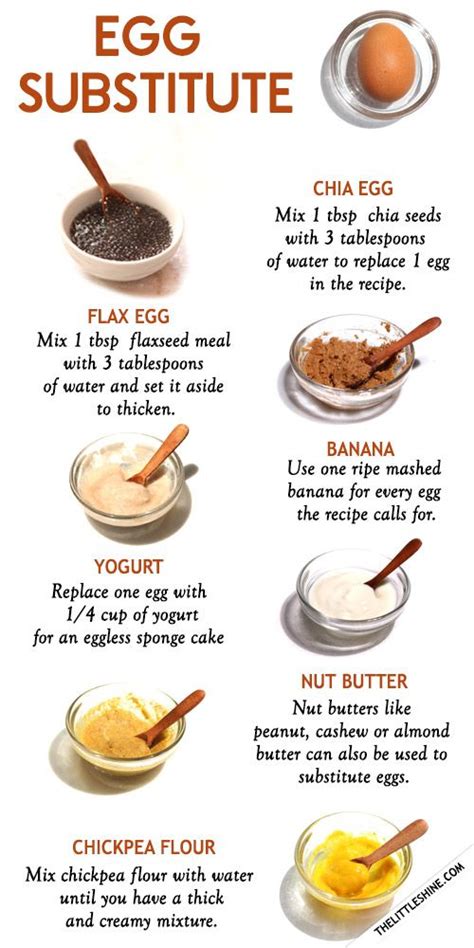What Can I Substitute for Eggs in a Recipe?
Finding the perfect egg substitute can be tricky, but it's totally doable! This comprehensive guide will walk you through various options, depending on what you're baking or cooking and what qualities of the egg you need to replicate. We'll cover everything from binding and leavening to richness and flavor. Let's dive in!
Understanding Egg Functions in Recipes
Before we explore substitutes, it's crucial to understand what role eggs play in your recipe. Eggs contribute several key functions:
- Binding: Eggs act as a glue, holding ingredients together in baked goods like cookies and cakes.
- Leavening: In some recipes, eggs help create air pockets, contributing to a light and fluffy texture. Think angel food cake!
- Emulsification: Eggs help combine ingredients that don't typically mix well, like oil and water.
- Moisture & Richness: Eggs add moisture and richness to both sweet and savory dishes.
- Structure: In some recipes, eggs provide structure and support, helping to prevent collapse.
Best Egg Substitutes & When to Use Them
The best substitute will depend on the recipe and the function the egg serves. Here are some popular options:
For Binding:
- Mashed Banana: A great option for muffins, cakes, and quick breads. One mashed banana typically replaces one egg. Adds moisture and sweetness.
- Applesauce: Similar to banana, applesauce (unsweetened is best) works well in many baked goods. One egg is usually replaced by ¼ cup applesauce.
- Flaxseed Meal or Chia Seeds: Mix 1 tablespoon of flaxseed meal or chia seeds with 3 tablespoons of water. Let it sit for 5-10 minutes to form a gel-like consistency. This works well as a binder in vegan baking.
- Silken Tofu: Pureed silken tofu provides a binding and moistening effect. Use ¼ cup pureed silken tofu per egg.
For Leavening:
- Baking Powder/Baking Soda: If the egg's primary function is leavening, you may need to adjust the amount of baking powder or baking soda in your recipe. Consult your recipe for specific instructions.
For Emulsification:
- Mayonnaise: A surprising but effective choice for emulsifying ingredients. Start with ¼ cup mayonnaise per egg. The flavor might be noticeable, so consider your recipe.
For Moisture & Richness:
- Yogurt or Sour Cream: Adds moisture and a subtle tang. Use ¼ cup per egg. Works well in cakes and quick breads.
Tips for Successful Egg Substitution
- Always start with a small substitution: If you're unsure, try substituting one egg at a time to assess the impact on texture and flavor.
- Read your recipe carefully: Pay close attention to the egg's role in the recipe before selecting a substitute.
- Adjust other ingredients: You may need to slightly adjust other ingredients (like flour or liquid) to achieve the desired consistency.
- Don't be afraid to experiment: Baking is a science, but it's also an art! Don't be afraid to try different substitutes and see what works best for you.
Conclusion
Replacing eggs successfully requires understanding their role in the recipe. By carefully considering the specific function of the eggs and selecting the appropriate substitute, you can create delicious baked goods and dishes even without eggs. Happy baking!
